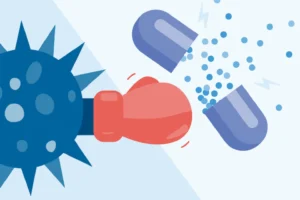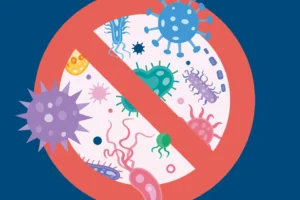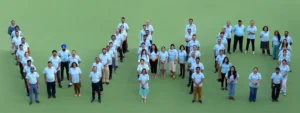In a world where microscopic adversaries pose a growing threat to our health, the World AMR Awareness Week (WAAW) emerges as a beacon of enlightenment and collaboration. From November 18 to 24, 2023, individuals, healthcare professionals, and communities worldwide will unite to raise awareness about antimicrobial resistance (AMR) and collectively work towards preventing the emergence and spread of drug-resistant infections.

Understanding AMR: A Closer Look at the Invisible Challenge
Antimicrobial resistance, or AMR, is a pressing global concern stemming from microorganisms—bacteria, viruses, fungi, and parasites—adapting to medications. This adaptation renders these medications less effective or completely ineffective, jeopardizing our ability to combat infections and diseases. Crucially, it is the microbes causing infections that develop resistance, not our bodies.
Why AMR Matters ?

Global Impact on Health and Economics
Recognized by the World Health Organization (WHO) as one of the top 10 global public health threats in 2019 and declared an urgent health challenge for the decade in 2020, AMR infections directly caused 1.95 million deaths in 2019. Alarming projections suggest that by 2050, approximately 24 million people could be pushed into extreme poverty due to the impact of AMR. The implications are far-reaching, as AMR infections demand longer treatment times, result in extended hospital stays, incur higher medical costs, and pose an elevated risk of complications and mortality.
Tracing the Path of AMR: How It Spreads ?
Natural Evolution and Human Activities
AMR develops gradually through the natural evolution of microorganisms, often driven by genetic changes. These resistant organisms are present in people and animals, causing infections and contaminating food, plants, and the environment, including water and soil. Spread can occur from person to person, between people and animals, or through contaminated food and water. Notably, the overuse and misuse of antimicrobials expedite the development of AMR.
Steps Towards a Resilient Future: Preventing AMR
Promoting Responsible Antimicrobial Use
- Follow Medical Advice: Take antimicrobials exactly as prescribed by your healthcare provider; avoid sharing prescriptions with others.
- Hand Hygiene: Keep hands clean to prevent infections; regular handwashing is a simple yet powerful preventive measure.
- Coughing/Sneezing Etiquette: Adhere to proper coughing and sneezing etiquette to minimize the spread of harmful bugs.
- Educate and Advocate: Raise awareness about AMR by participating in World AMR Awareness Week (18-24 November) and Go Blue day on 24 November. Share pictures on social media using #WAAW and #AMR.
Spreading the Blue Wave: A Call to Action

As we embark on World AMR Awareness Week, let’s collectively “go blue” to symbolize our commitment to preventing AMR. By understanding, acting responsibly, and advocating for change, we can safeguard the effectiveness of antimicrobials, ensuring a healthier future for generations to come. Join the global movement and let the world hear our united call: “Preventing Antimicrobial Resistance Together.